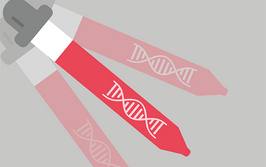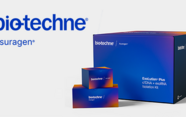Addressing Clinical Needs in Precision Oncology with Rapid NGS: Experiences with the Oncomine Dx Express Test
sponsored by Thermo Fisher Scientific
June 13, 2024 - 11am ET
Genomic profiling plays a critical role in precision oncology. However, in the real-world, it is often constrained by challenges such as very small biopsies, sample quality, and turnaround time.
In this webinar, two laboratories share their journey in addressing these challenges and their decision to implement the Oncomine Dx Express Test. Explore how this rapid and automated NGS assay has empowered these laboratories to analyze challenging samples, streamline workflows, and deliver timely, high-quality genomic profiling to enhance patient care.
Webinar learning objectives:
- Reasons for implementing Oncomine Dx Express Test for in-house genomic profiling from two molecular pathology laboratories in Europe
- Real-world experiences including its utility, integration into the laboratory workflow, and analysis of clinical samples, such as challenging samples and liquid biopsies
- Case studies where turnaround time played a critical role
*For In Vitro Diagnostic Use. Not available in all countries including the United States.
Abbreviated Intended Use: The Oncomine Dx Express Test is a qualitative in vitro diagnostic test that uses targeted next-generation sequencing (NGS) technology, the Ion Torrent Genexus Dx System to detect deletions, insertions, substitutions and copy number gain present in 42 genes and fusions in 18 genes from DNA and RNA extracted from formalin-fixed, paraffin-embedded (FFPE) tumor tissue samples. Oncomine Dx Express Test also detects deletions, insertions, substitutions in 42 genes and fusions in 7 genes from cfTNA extracted from plasma samples. The Oncomine Dx Express Test is intended to provide clinically relevant tumor mutation profiling information to be used by qualified health care professionals in accordance with professional guidelines as an aid in therapy management of cancer patients with solid malignant neoplasms using FFPE samples and as an aid in therapy management of cancer patients with non-small cell lung cancer using plasma samples. It is not conclusive or prescriptive for labeled use of any specific therapeutic product.




















